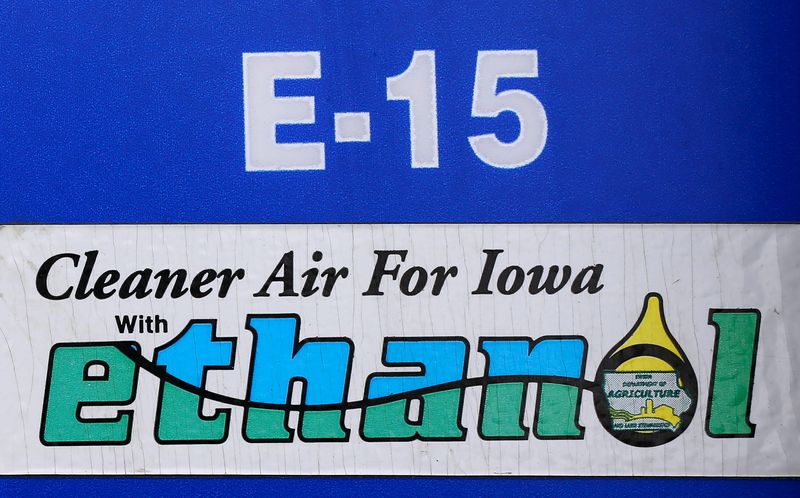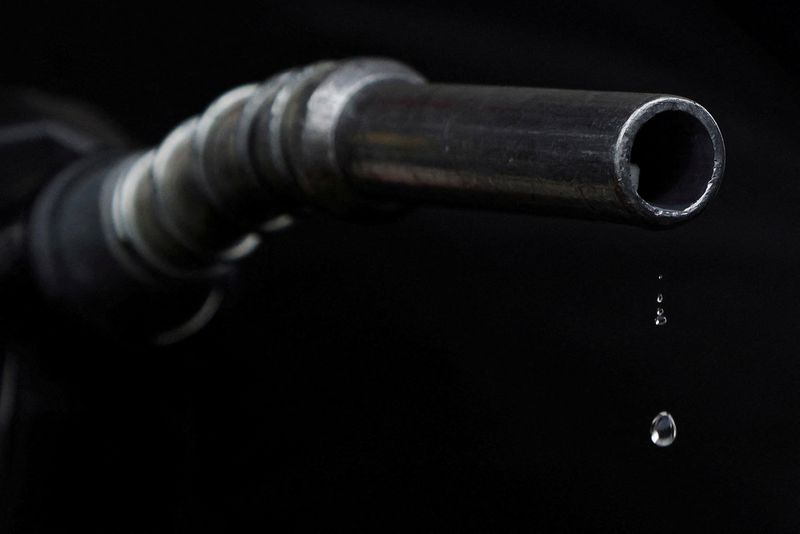By Stephanie Kelly
NEW YORK (Reuters) -The Biden administration is considering temporarily removing restrictions on summer sales of higher-ethanol gasoline blends as a way to lower fuel costs for U.S. consumers, three sources familiar with the matter told Reuters.
The review comes as President Joe Biden seeks to tame soaring pump prices, which hit a record this month following Russia's invasion of Ukraine in late February. The United States and other consumer countries have banned imports of oil from Russia, a major world supplier, to punish it for the invasion.
Adding more ethanol to gasoline blends could potentially reduce prices at U.S. gas pumps because ethanol, which is made from corn, is currently cheaper than straight gasoline.
The Environmental Protection Agency said it could not comment on whether it was considering the move, but said it was "considering a range of options across the administration to help mitigate impacts from Russia's actions on American consumers."
The action would be welcomed by the ethanol industry, which has fought to increase sales of the fuel blend, known as E15, and lift summertime restrictions on it. E15 contains up to 15% ethanol, versus the 10% found in most U.S. gasoline.
The summertime ban on E15 was imposed over concerns that it contributes to smog in hot weather, though research has shown that the 15% blend of fuel may not increase smog relative to the more common 10% blends sold year-round.
A bipartisan group of U.S. Farm Belt lawmakers has been pushing the White House to lift the summertime ban.
Earlier this month, senators including Chuck Grassley from Iowa and Dick Durbin from Illinois - the two biggest corn-producing states - asked Biden in a letter that he allow the sale of E15 over the 2022 driving season, arguing the added ethanol would deliver lower costs to consumers.

The move, however, has the potential to lift prices for food since ethanol is made from corn. The Biden administration was previously studying whether waiving mandates that require biofuels be blended into the nation's fuel mix could help offset a surge in prices for food ingredients like corn and soy oil.
Inflation is seen as a major threat to Democrats at the polls in November's mid-term elections.
